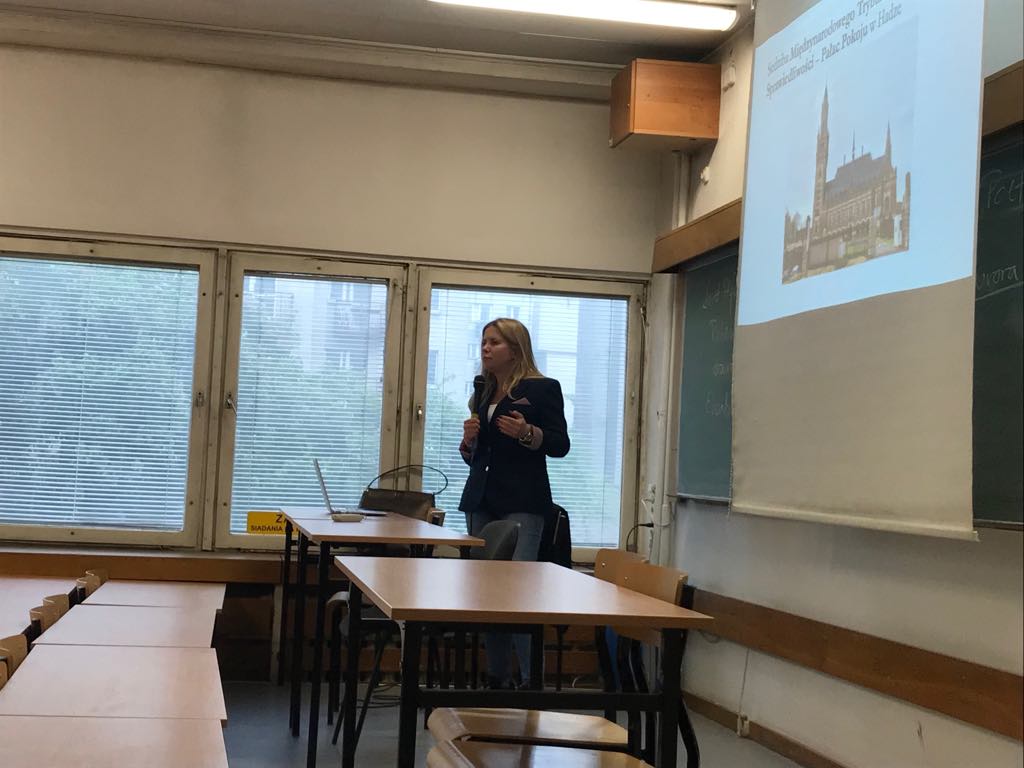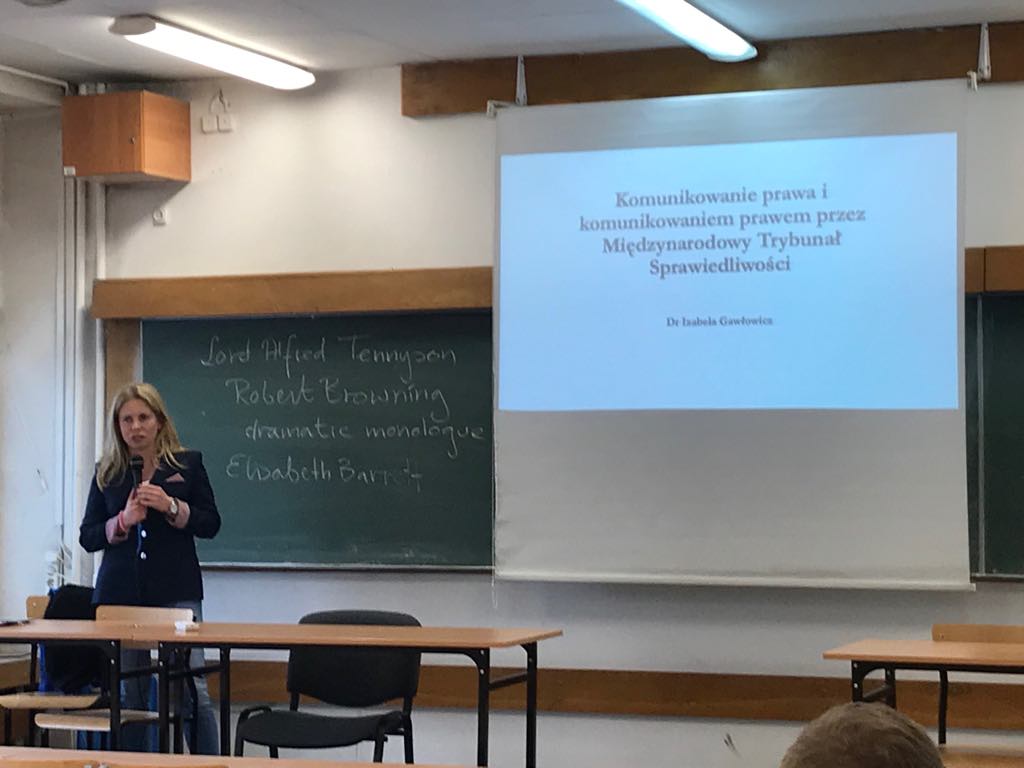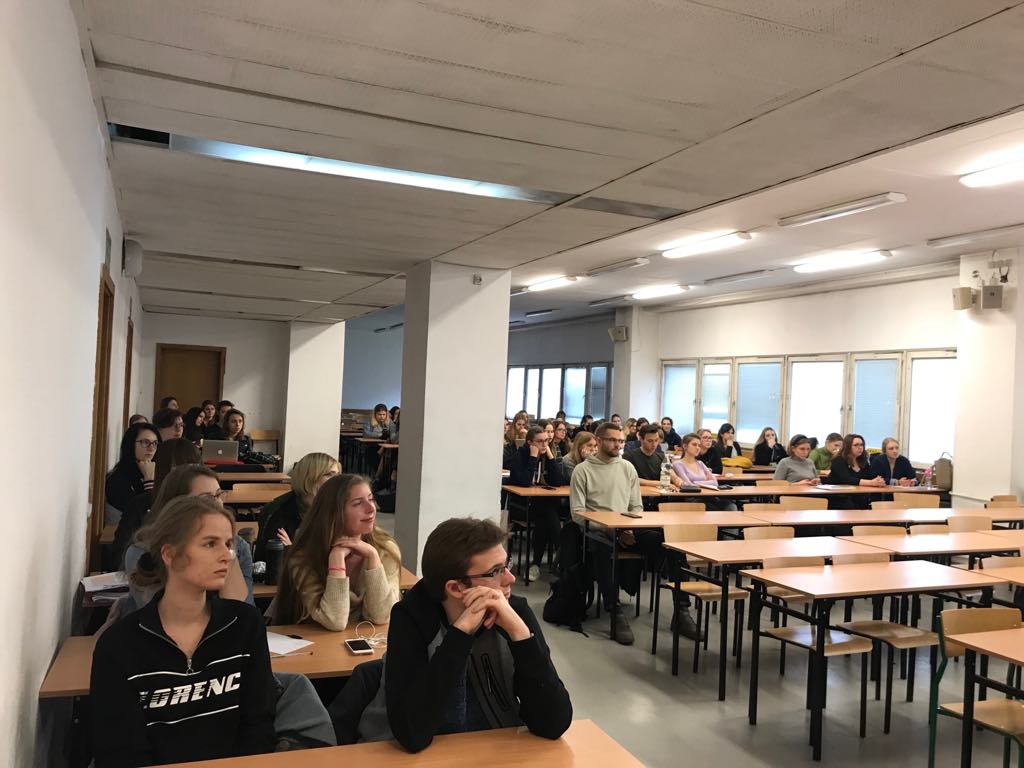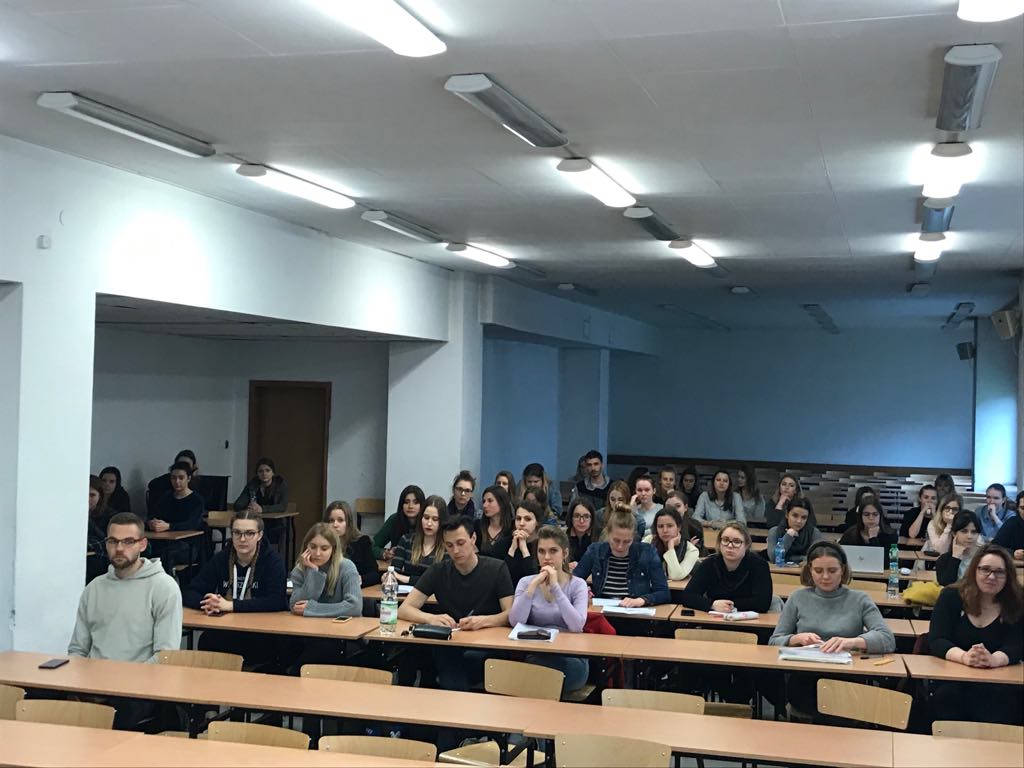On May 15, 2019, the first public colloquium of the International Legal Communication Research Center took place. The lecture entitled „Communication of Law and Communication by Law by the International Court of Justice” was delivered by dr Izabela Gawłowicz, assistant professor at the Department of International and European Law at the University of Zielona Góra, a promoter of the Court’s jurisprudence and an enthusiast of its importance in international public law.
The International Court of Justice is a judicial body of the United Nations and has two functions: it settles legal disputes between states (judicial function) and issues legal opinions at the request of authorized UN bodies (advisory function). The Court’s judicial function consists in applying existing recognised norms and rules of international law to legal problems raised in the light of the actual situation by the parties to the dispute.
Public international law is of a general nature. Already at the stage of its creation, differences must be taken into account regarding legal traditions and material and institutional solutions of the states to which it is addressed. Therefore, any authoritative statement of experts on international law is very important to its development. The linguistic indeterminacy of international law, resulting from its ambiguous terminology, amplified by the differences in the language versions of treaties, creates difficulties at various stages of interpretation and application of these norms. Some (unspecified) issues are deliberately left to judiciary or custom to further clarify. Thus, making the interpretation of law by international courts can even be law-making, which usually happens when the court has to fill the legal loophole. This, in turn, leads to the development of international law.
During the lecture, reference was made to ICJ rulings: Reparation for Injuries Suffered in the Service of the United Nations (ICJ advisory opinion of April 11, 1949), Barcelona Traction (ICJ ruling of February 5, 1970), United States Diplomatic and Consular Staff in Tehran (ICJ ruling of May 24, 1980), Application of the Convention on the Prevention and Punishment of the Crime of Genocide (ICJ ruling of July11, 1996), the legality of the possession of nuclear weapons. (ICJ advisory opinion of July 8, 1996). These matters constituted the basis for reflections on how the Court uses judicial technique consisting in specifying the content of the law, that is how it communicates international law and how the Court announces relationships existing between international law and the values it protects – that is, communicates by law.
After the lecture there was a vital discussion the was particularly interesting in the axiological aspect: one of the questions concerned the values that justify and confirm the key for appointing ICJ judges.





